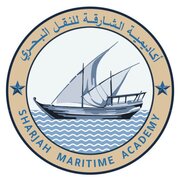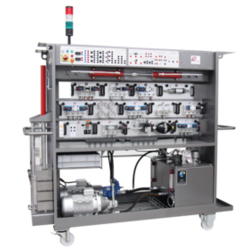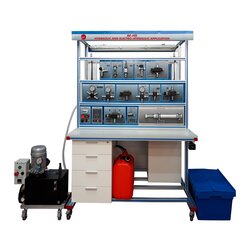Hands-on Training in Marine Hydraulics
When the Arab Academy for Science, Technology and Maritime Transport in Sharjah (UAE) developed their College of Maritime Transport and Technology, they prioritized giving their students not only theoretical understanding, but also practical experience.
Visionary leaders developed both hands-on training centers and simulator complexes. Edquip worked with two technology partners from Spain and France to provide equipment for teaching Hydraulics. More below about this project and the reasoning for teaching Hydraulics in Maritime settings.
On this link you can also explore the category of different Hydraulic Training Equipment which might be suitable for your training purposes.
Challenge
Meeting Employer Skills Requirements
One of the main topics for engineers and technicians in marine environments is hydraulics. It has become one of the most used power delivery systems due to the highly efficient linear and rotary forces and torques.
Learning the concepts of fluid power and hydraulics in particular is important in a marine environment because it is used in a variety of applications such as:
- Cranes: Rotary and linear operation for lifting and maneuvering.
- Winches: Rotary operation, commonly for mooring and anchor handling.
- Stabilizers: Rotary and linear operation for roll stabilization.
- Steering Machines: Rotary and linear operation for directional control.
- Bow and Stern Thrusters: Rotary operation for lateral movement and docking.
- Adjustable Pitch Propellers: Rotary operation for propeller blade angle adjustment.
- Remotely Operated Equipment: Rotary and linear operation of valves, doors, ventilation flaps, and similar mechanisms.
- Platforms and Passerelles: Linear operation for deployment and positioning.
Considering how often Hydraulic systems are used in marine environments, it is no wonder employers in the marine sector search for employees with Hydraulic skills.
Hydraulic systems are not only common, but also dangerous and prone to workplace accidents when not handled correctly by the employees. Therefore, it is very important to let students learn how to safely handle hydraulics in a stress-free environment with full safety procedures, trained instructors, and certified equipment.
The college leadership considered it their primary goal to train their students to have the necessary skills to safely handle Hydraulics equipment, which can only be done in a hands-on environment. Some secondary considerations for acquiring and using hands-on training equipment in their Hydraulic courses was also that it in comparison to text and theory led instruction, hands-on experiences are proven to increase content retainment, increase student engagement, and foster critical thinking.
Solution
Implementing Optimal Training Solutions
The college leadership were looking for instructional technology which would be a combination of hardware, software, and content, and which would help the students to learn by doing, by assembly, by trouble shooting and by fault diagnostics of hydraulic systems.
Furthermore, there was an interest from the faculty to go somewhat interdisciplinary and include subject topics such as electrical automation, smart sensors etc. With the support from Edquip, the college finally decided upon two different systems from French and Spanish manufacturers.
Hydraulic Training Bench BH14 – ID Systems
The hydraulic didactic training bench BHI4 is a completely upgradeable and modular fitting system. Its robust steel mechanical soldered chassis, single or double face, is designed to allow industrial components mounted on anodized plates. Equipped with hoses with quick couplings, this bench allows for wiring circuits in on-off and proportional hydraulics.
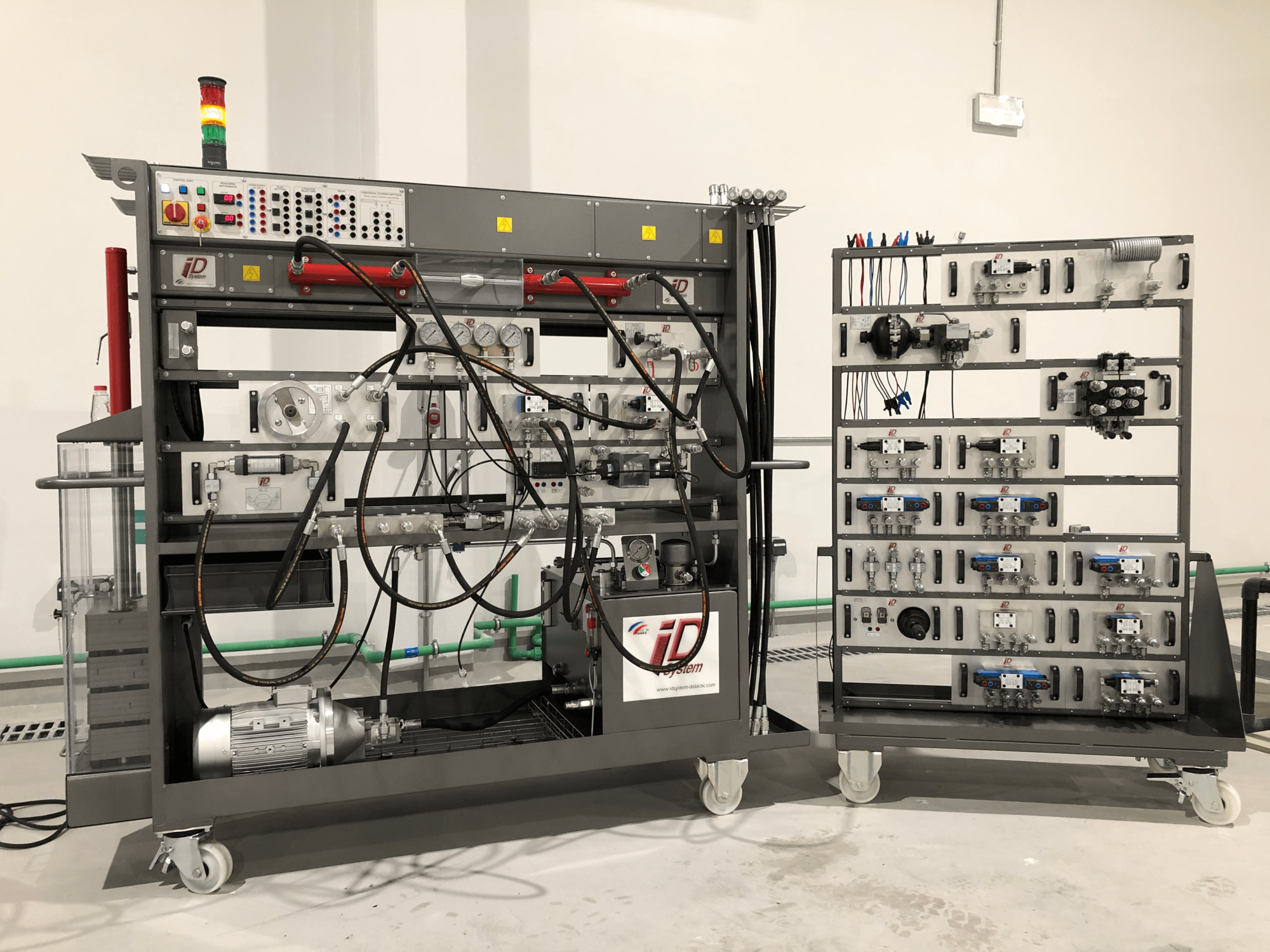
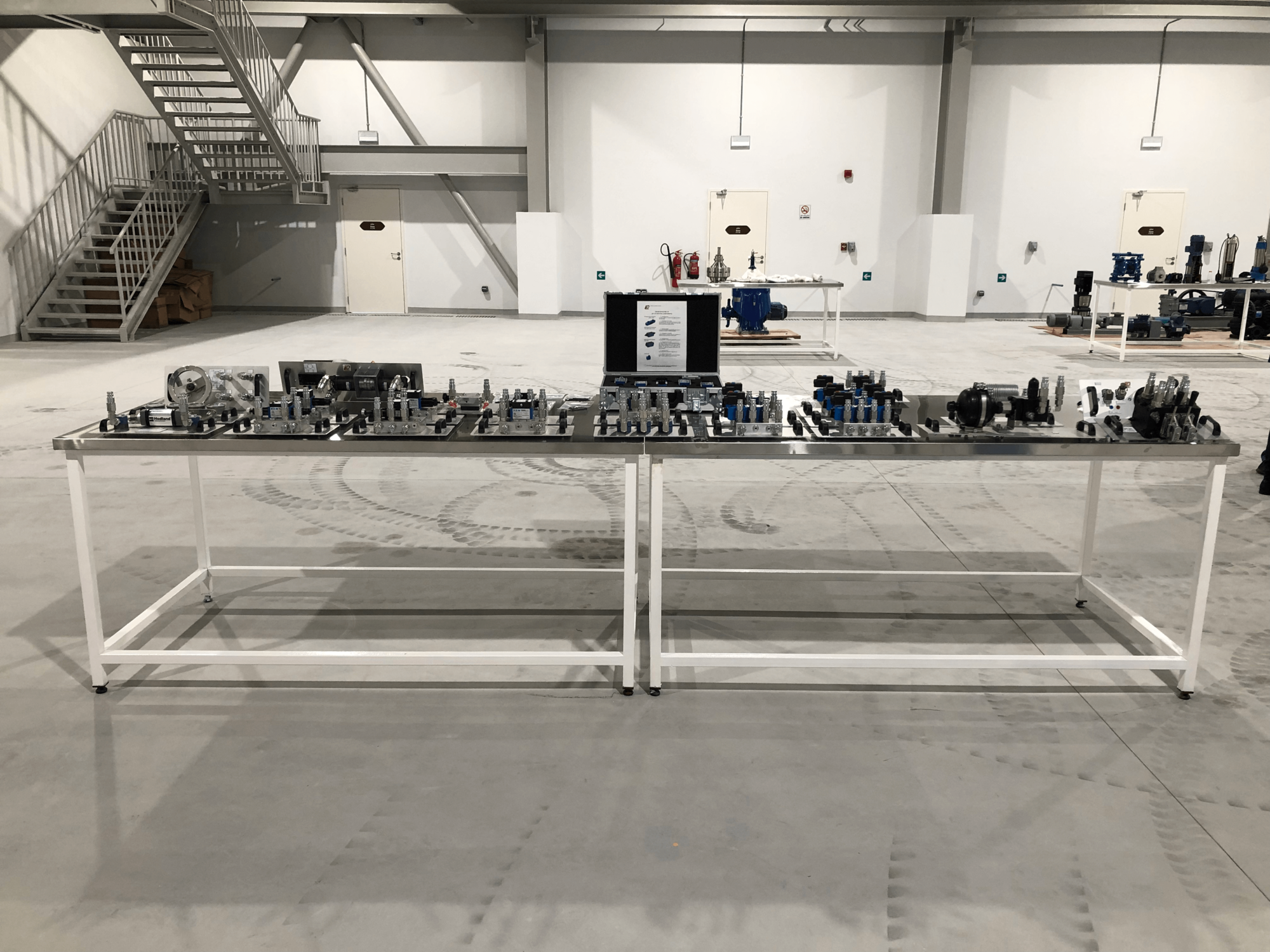
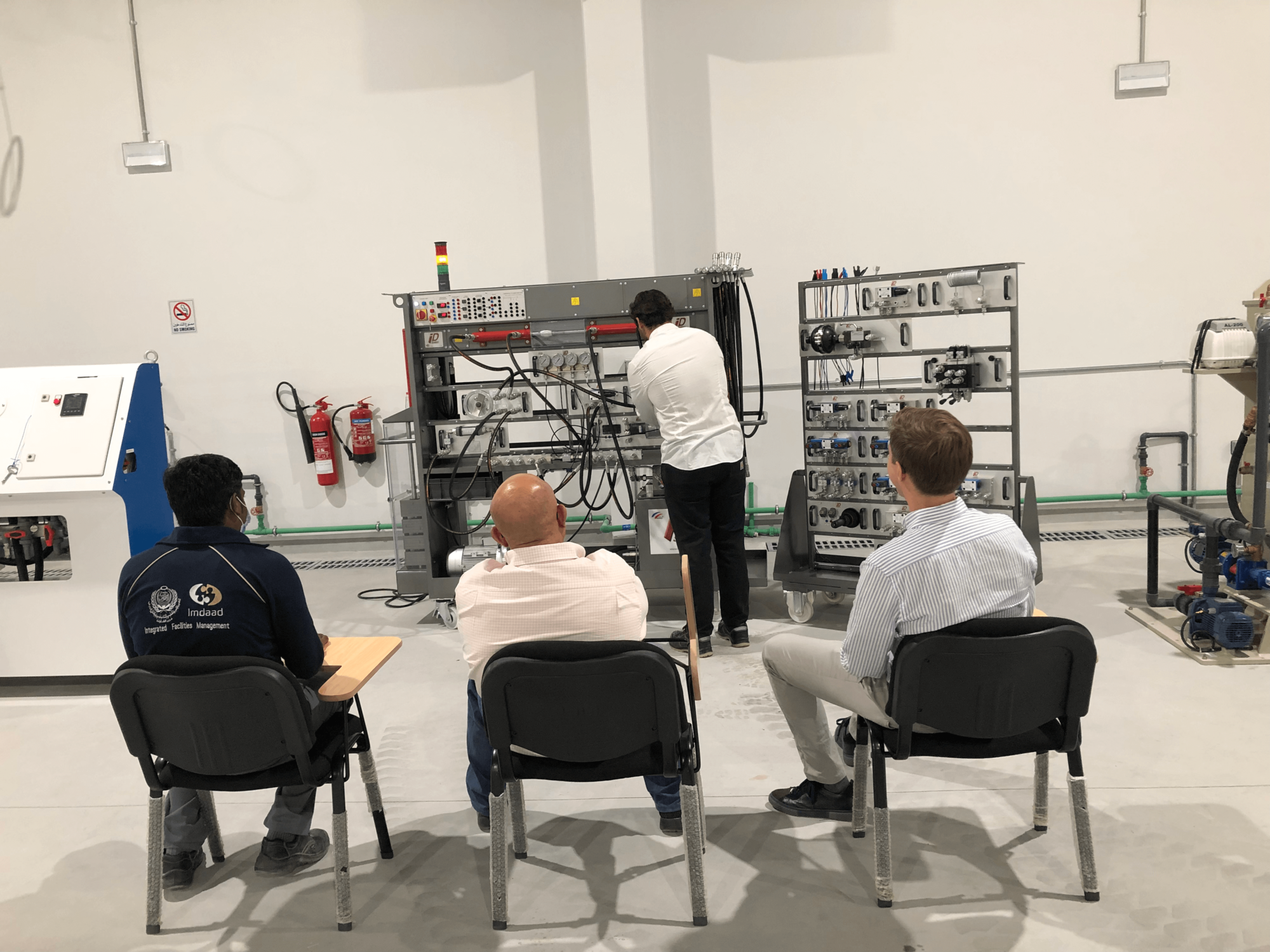
Hydraulic and Electrolhydraulic Application – Edibon
The Hydraulic and Electro-Hydraulic Application, is a modular unit consisting of a great variety of optional kits and elements to configure the desired Hydraulic and Electro-Hydraulic circuit. The optional hydraulic kits available with the unit, offers the necessary elements to perform a complete study of management and utilization of the actual hydraulic circuits, with some examples of uses of this type of circuits.
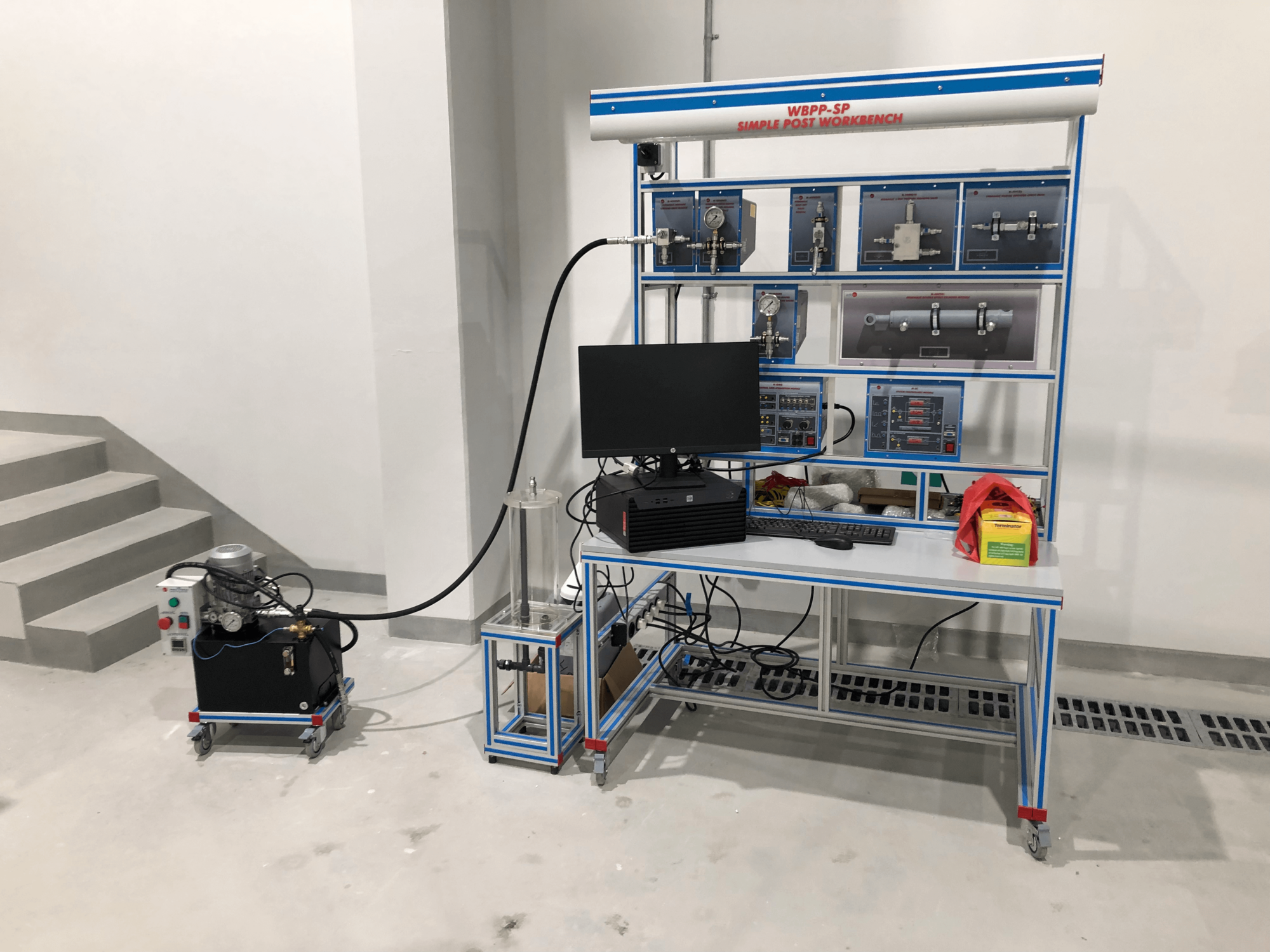
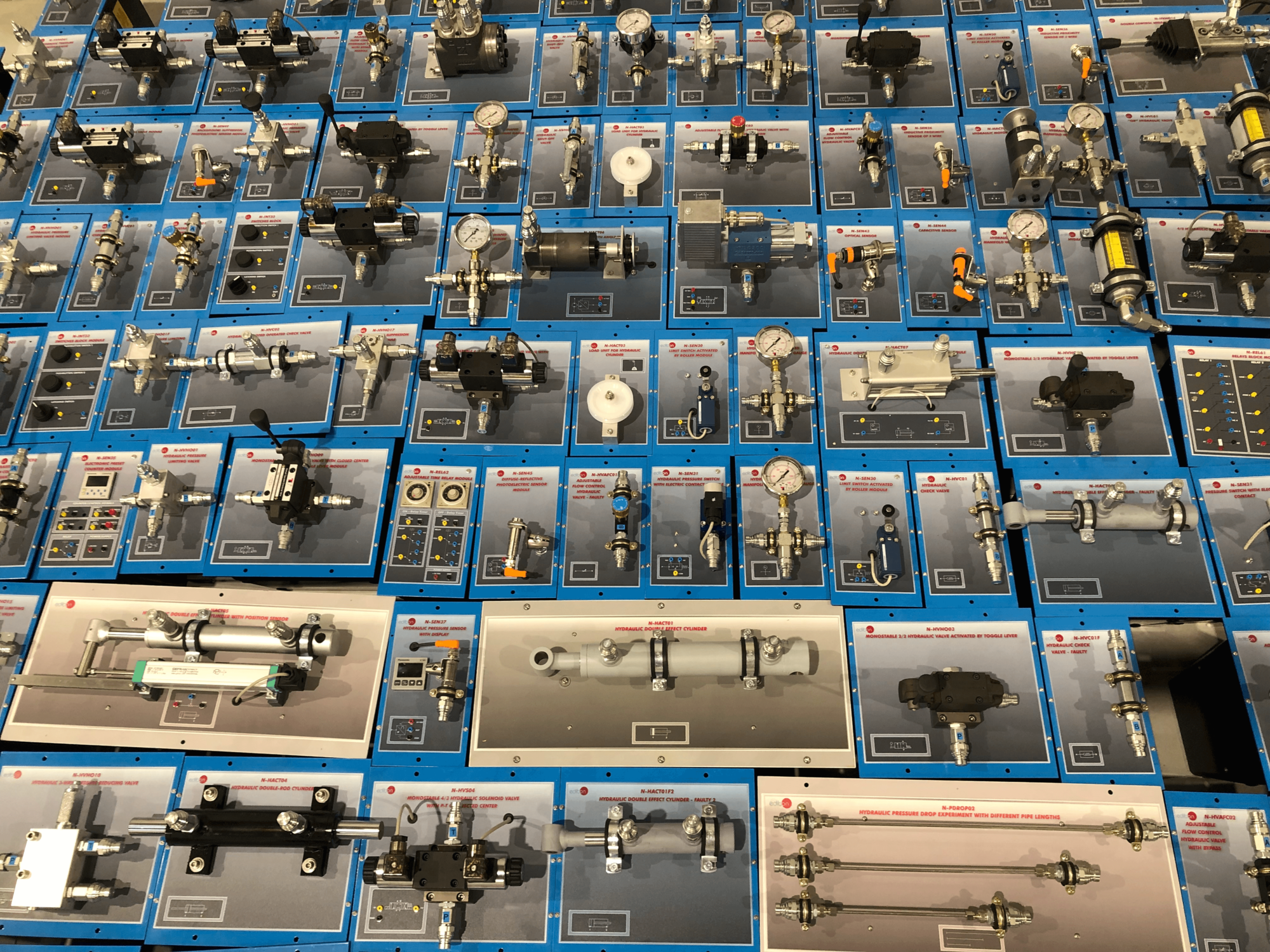
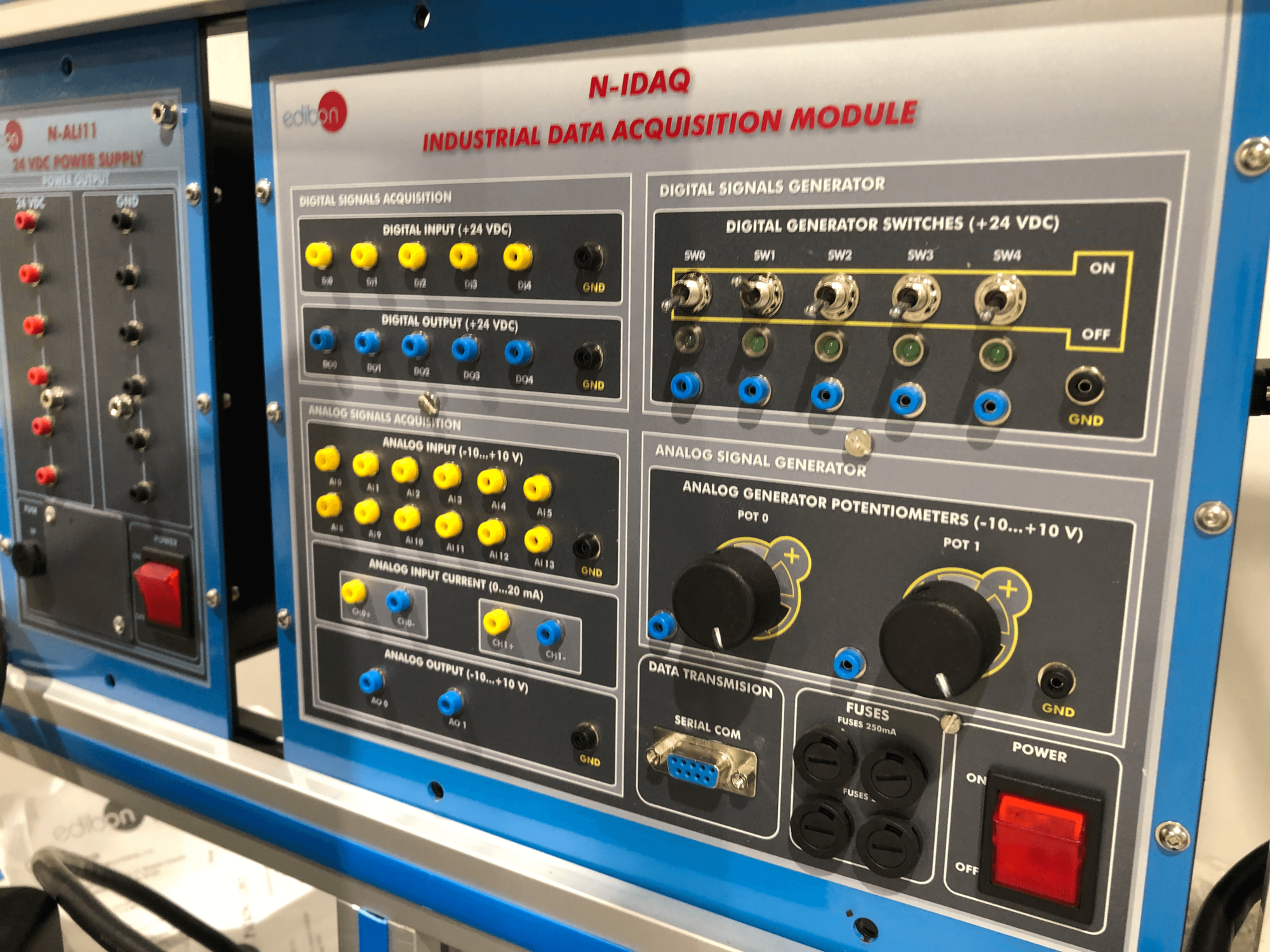
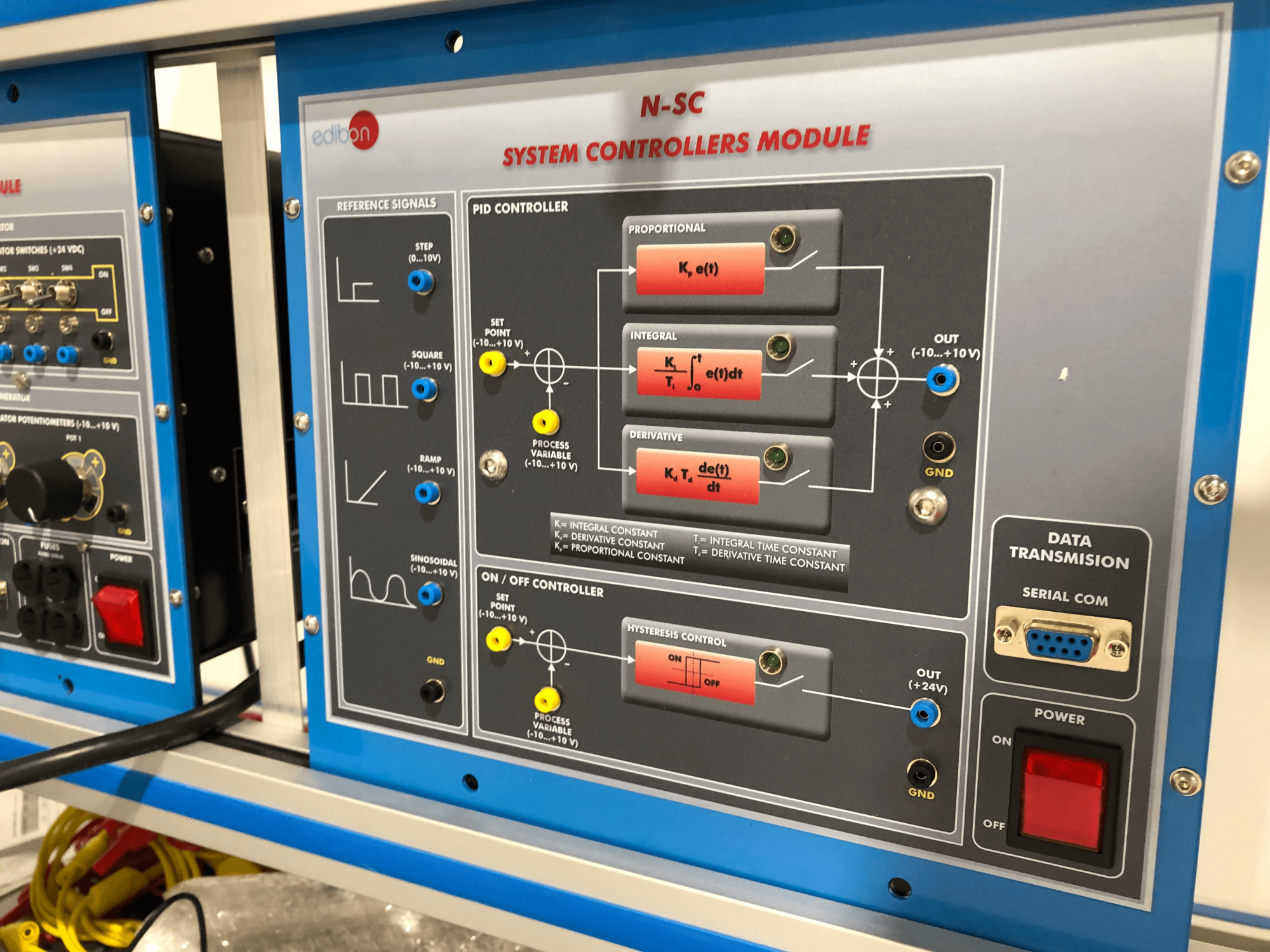
Installation, Training & Commissioning
Neither of the two chosen training equipment’s are off-the-shelf products, instead they are made to order, and lead time was 3-4 months (excluding the time for shipping), which was quite an achievement considering the limitations on ingoing components during supply chain disruptions in Covid times. The equipment’s were manufactured, tested, packed, shipped to the UAE and then customs cleared.
Manufacturer representatives were scheduled to later be on place to oversee unpacking of shipment, managing installation and commissioning, as well as training the local trainers and technicians, who would then take on the task to run classes and workshops for students and trainees.
Results
Student results are convincing
Since the implementation of the new Hydraulic training systems, the College of Maritime Transport and Technology has seen remarkable improvements in student outcomes. The combination of theoretical knowledge and hands-on experience has led to a deeper understanding and greater proficiency among students in handling hydraulic systems.
Students have demonstrated significant improvements in their practical skills. They have gained the ability to design, assemble, and troubleshoot hydraulic systems, which are crucial competencies in marine engineering. The training has also fostered critical thinking and problem-solving abilities, as students navigate real-world scenarios and equipment during their hands-on sessions.
Hands-on training has proven to be more engaging for students compared to traditional text-based instruction. This engagement translates to higher retention rates of the material, as students can directly apply what they learn in a practical setting. The interactive nature of the training keeps students motivated and invested in their education.
The inclusion of interdisciplinary topics such as electrical automation and smart sensors has broadened the students’ learning horizons. This interdisciplinary approach equips students with a versatile skill set, making them more adaptable and competitive in the job market.
The initiative by the Arab Academy for Science, Technology and Maritime Transport in Sharjah to enhance their College of Maritime Transport and Technology with advanced hydraulic training systems has proven to be a resounding success. The commitment to providing a comprehensive, practical education has yielded impressive results, ensuring that graduates are well-equipped to meet the demands of the marine industry.
As the college continues to innovate and adapt to the evolving needs of the maritime sector, its students will undoubtedly remain at the forefront of marine engineering excellence. This project serves as a model for other educational institutions aiming to blend theoretical knowledge with practical expertise in their curricula.

Producer quote


